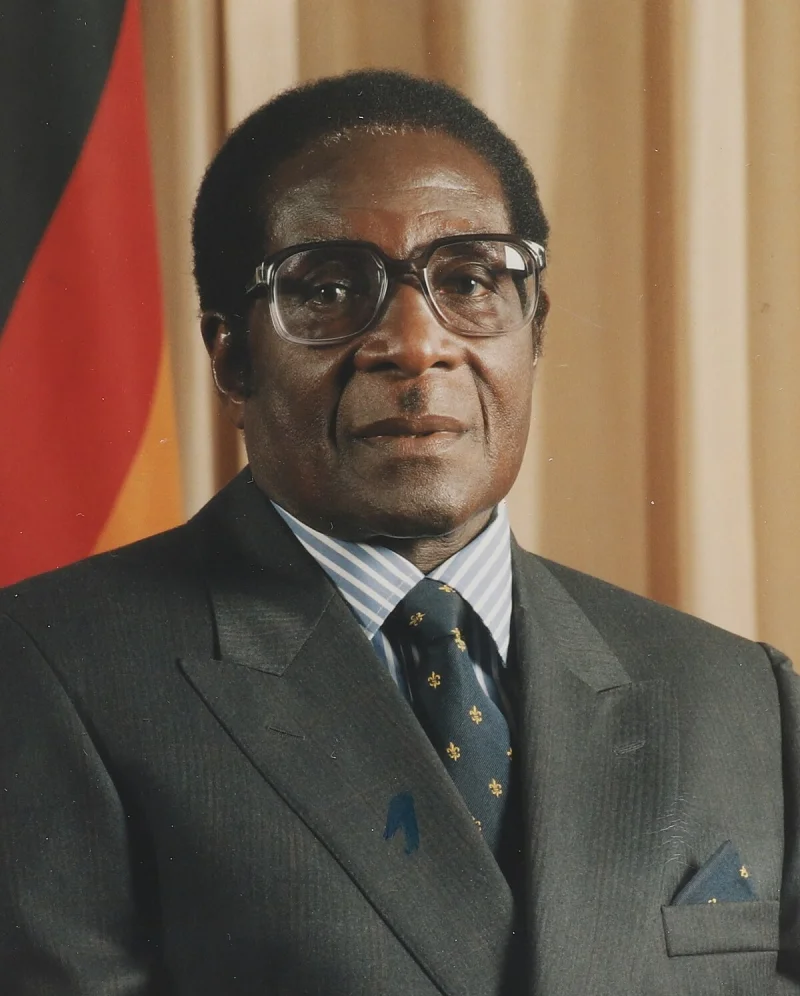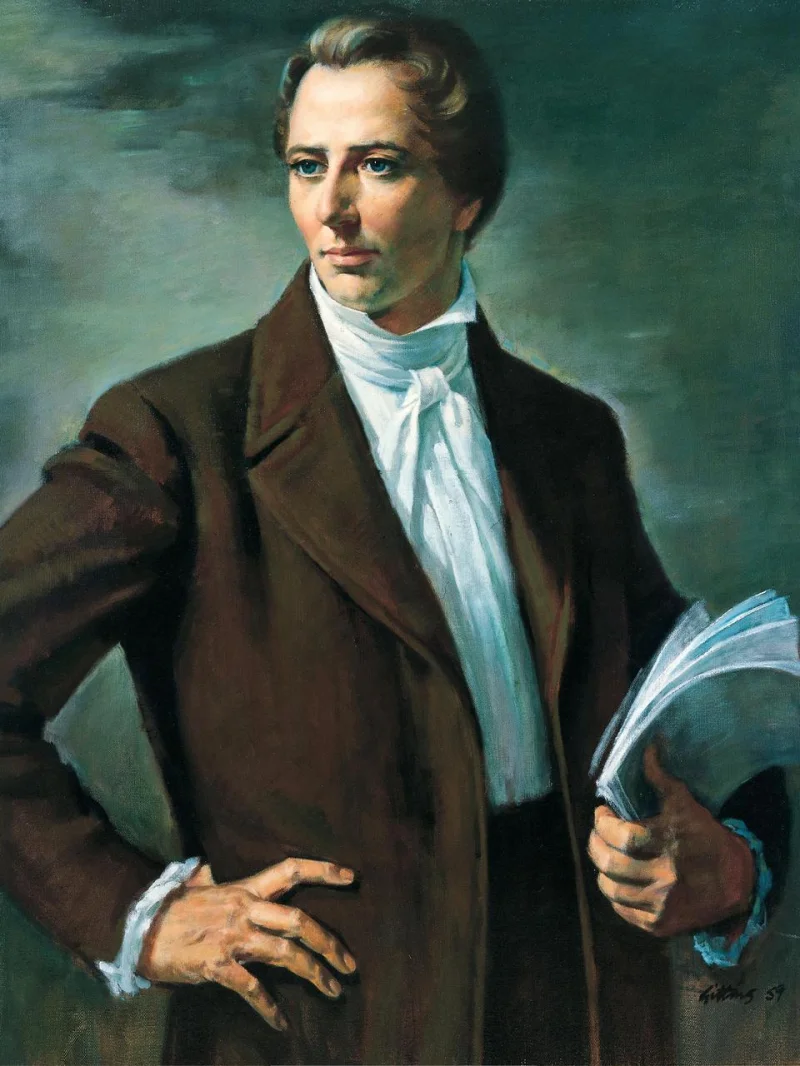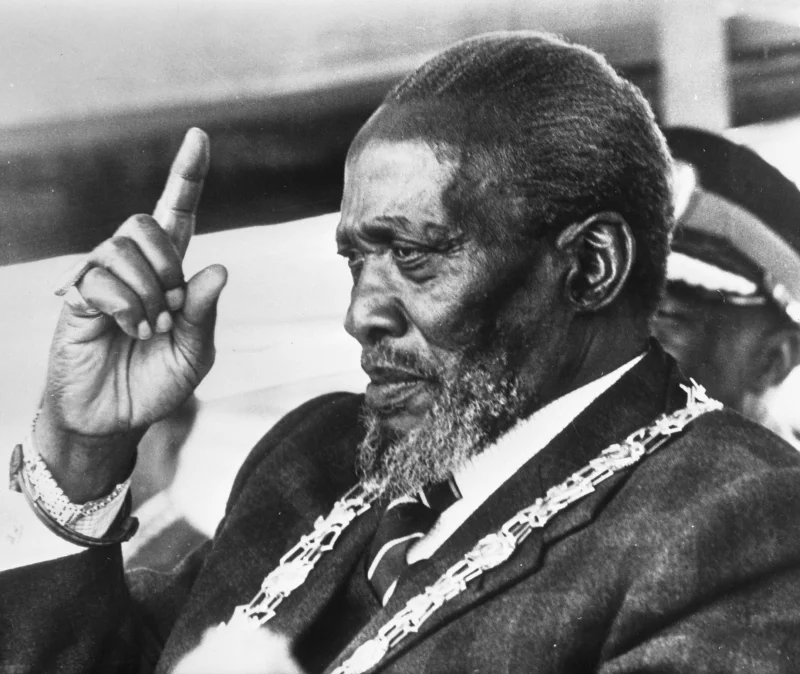Short Summary
Robert Mugabe was a Zimbabwean revolutionary and political leader who served as Prime Minister from 1980 to 1987 and as President from 1987 to 2017. He played a significant role in Zimbabwe's liberation from colonial rule and was a key figure in the country's transition to independence. Mugabe is known for his controversial land reform policies and his tenure marked by economic decline and human rights issues. He remains a polarizing figure in both African and world politics.
Early Life & Education
Born on February 21, 1924, in Kutama, Southern Rhodesia (now Zimbabwe), Robert Gabriel Mugabe was the third of six children. His father, Gabriel, was a carpenter, and his mother, Bona, was a devout Christian. Mugabe's early education was influenced by his Jesuit teachers who instilled in him a strong sense of discipline and a passion for learning. He attended Kutama College and later South Africa's Fort Hare University, where he earned a Bachelor of Arts degree. He furthered his education through correspondence courses, obtaining multiple degrees, including a Bachelor of Education.
Career Highlights
Mugabe's political career began in the 1960s when he joined the Zimbabwe African National Union (ZANU), advocating for the end of British colonial rule. He became a prominent figure in the liberation struggle, spending over a decade imprisoned without trial. In 1980, after a protracted guerrilla war, Zimbabwe gained independence, and Mugabe became the country's first Prime Minister. He later assumed the presidency in 1987, a position he held until his resignation in 2017. His leadership was marked by efforts to improve education and healthcare, though his later years were overshadowed by economic turmoil and political repression.
Major Achievements
- Played a key role in Zimbabwe's liberation from colonial rule, leading the country to independence in 1980.
- Implemented widespread educational reforms, increasing literacy rates in Zimbabwe.
- Instituted land reform policies aimed at redistributing land from white farmers to black Zimbabweans.
Famous Quotes
- "The only white man you can trust is a dead white man."
- "Our votes must go together with our guns. After all, any vote we shall have, shall have been the product of the gun."
Interesting Facts
- Mugabe was one of the world's oldest and longest-serving leaders, ruling Zimbabwe for 37 years.
- He was a keen reader and amassed a large collection of books over his lifetime.
- Despite his controversial leadership, Mugabe was awarded several international honors, though some were later revoked.
Legacy / Influence
Mugabe's legacy is complex, with a mix of accomplishments and controversies. He is credited with advancing education and healthcare, yet his economic policies and authoritarian governance resulted in severe hardships for many Zimbabweans. His land reforms remain a contentious issue, affecting agricultural productivity and international relations. Mugabe's influence extends beyond Zimbabwe, as he remains a symbol of African independence and the struggle against colonialism.
FAQ
Q: Why is Robert Mugabe famous?
A: He is famous for leading Zimbabwe to independence and serving as its leader for 37 years.
Q: When did Mugabe become President of Zimbabwe?
A: He became President in 1987 after serving as Prime Minister since 1980.
Q: What were some of Mugabe's policies?
A: He implemented educational reforms, land redistribution, and was known for his authoritarian rule.
Q: When did Robert Mugabe pass away?
A: He passed away on September 6, 2019.










